
‘Drii Winter’, a piece of sky in Switzerland’s quest for an Oscar
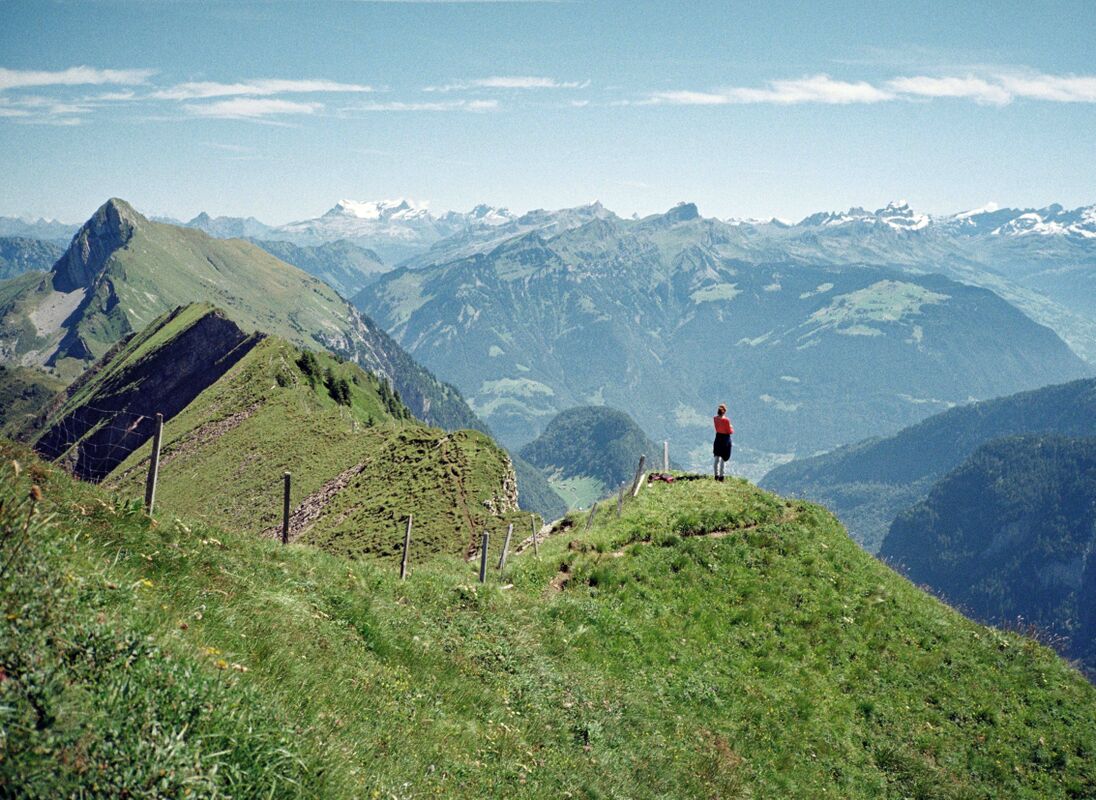
Swiss director Michael Koch is not stressed by the Oscar campaign for his latest film, Drii Winter. Finishing it was already a major challenge.
When Koch started shooting his new film, then titled Ein Stück Himmel (A Piece of Sky, which remains the international title), in early 2020, he had no idea it would become Switzerland’s submission for the Best International Feature Film category at the 2023 Academy Awards. In fact, for quite some time his main concern was completing it.
“We’d finished ten of the scheduled 70 shooting days when Covid-19 restrictions kicked in,” the Lucerne-born filmmaker told SWI swissinfo.ch.
Because parts of the film had a documentary-like approach, time was an issue; Koch and his team had planned to film the lives of the local people in the Uri mountains in the Swiss Alps. But since some of their activities were seasonal, any delays would have caused a two-year setback.
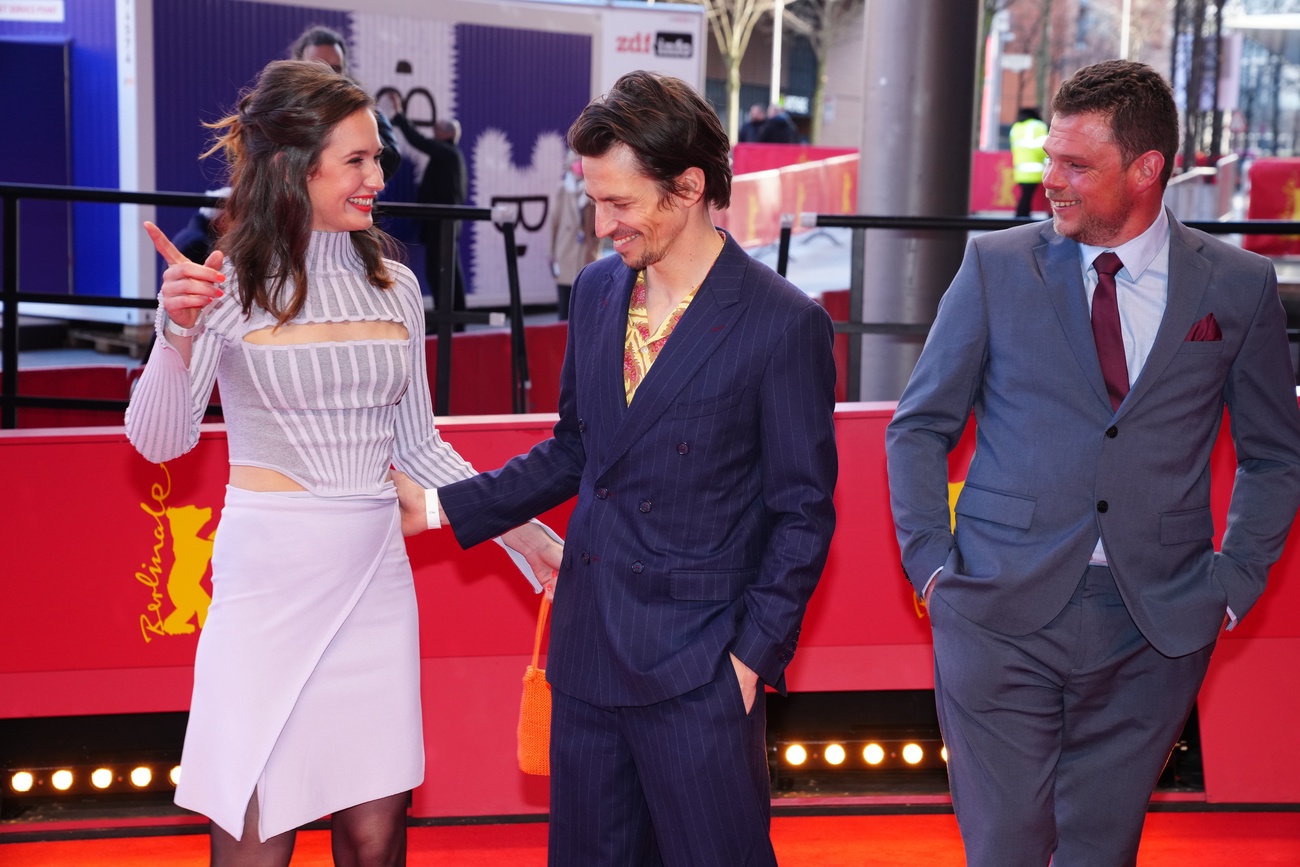
Looking back on the experience, he sees some parallels between himself and the female lead, postwoman and guesthouse worker Anna. “She has to deal with the fact that you can’t control everything, and that was our experience on the set as well,” he said.
Then again, his mastery of the elements – geographical and cinematic – was certainly greater than hers. Anna has to overcome multiple obstacles to preserve her relationship with her partner Marco, not least his mental issues, which add to her feeling of isolation for living in the middle of nowhere. That is the dramatic core of the film, a riveting Greek tragedy – complete with choir – set in the Swiss Alps.
Festival run
Fortunately, Koch and his team were able to finish filming after a few months, with not a single Covid-19 case on set. Meanwhile, he managed to secure awareness for the project when it was selected as part of The Films After Tomorrow, the special competition set by the 2020 Locarno Film Festival for films affected by the pandemic. In fact, Drii Winter (as it is now known) is the second film from that line-up to be selected as Switzerland’s Oscar hopeful. The first was Elie Grappe’s Olga last year.
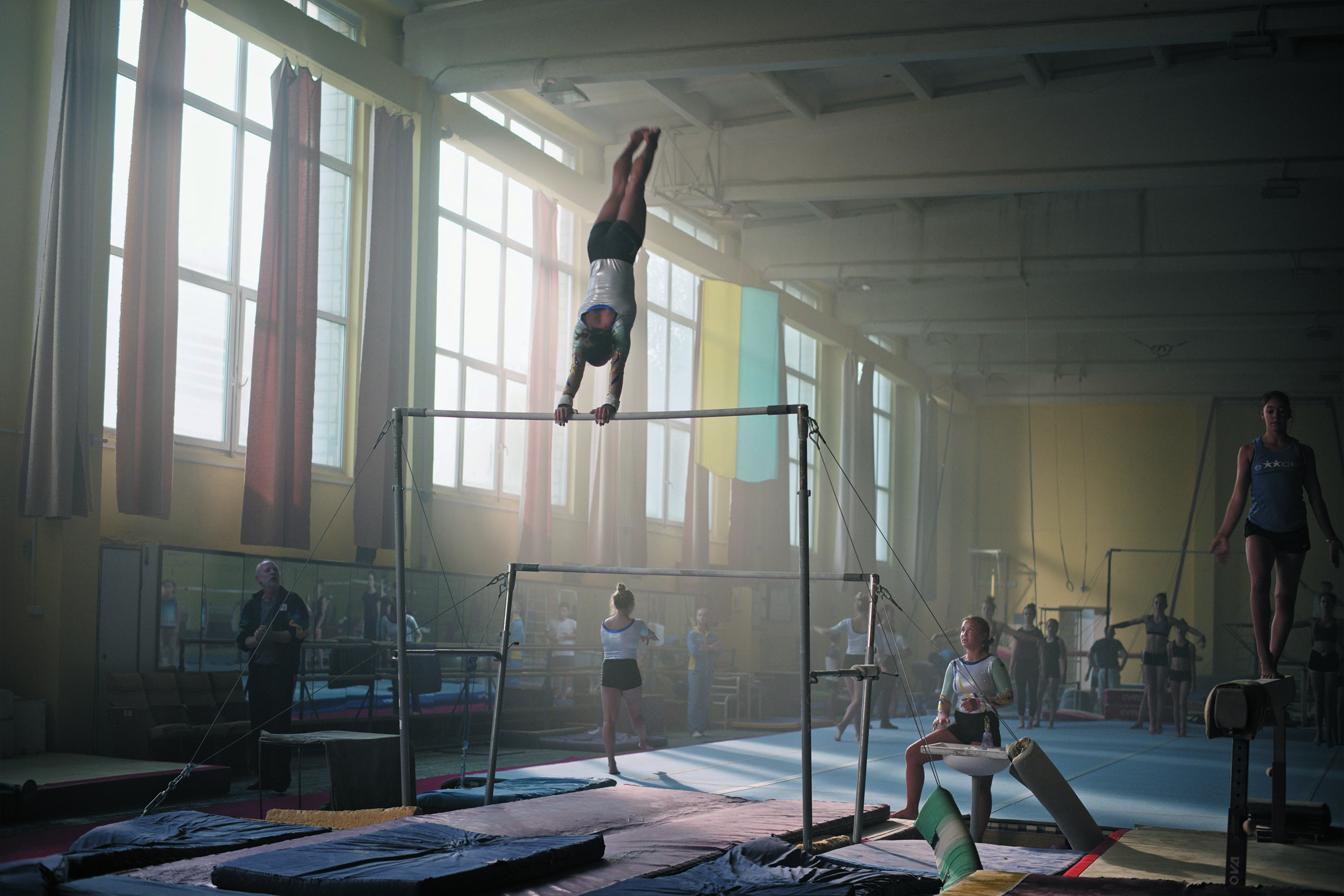
More
Olga, Elie and Oscar: the story of a remarkable Swiss film debut
Does the Academy Award factor increase the pressure on Koch when he presents the film at festivals? “I don’t feel it,” he says. “The film is still the same, and I feel the same about it. It was helpful for the theatrical release, though. We opened in German-speaking Switzerland on September 1, and the movie is still playing in cinemas.”
The announcement of the selection during the 2022 edition of the Locarno festival, in early August, helped build hype for the film, which has already been seen by more than 14,000 people in the German-speaking part of Switzerland. In comparison, Olga ended its nationwide theatrical run with 14,106 admissions in the entire country, according to ProCinema’s statistics. Further distribution across the rest of Switzerland is planned for early 2023.
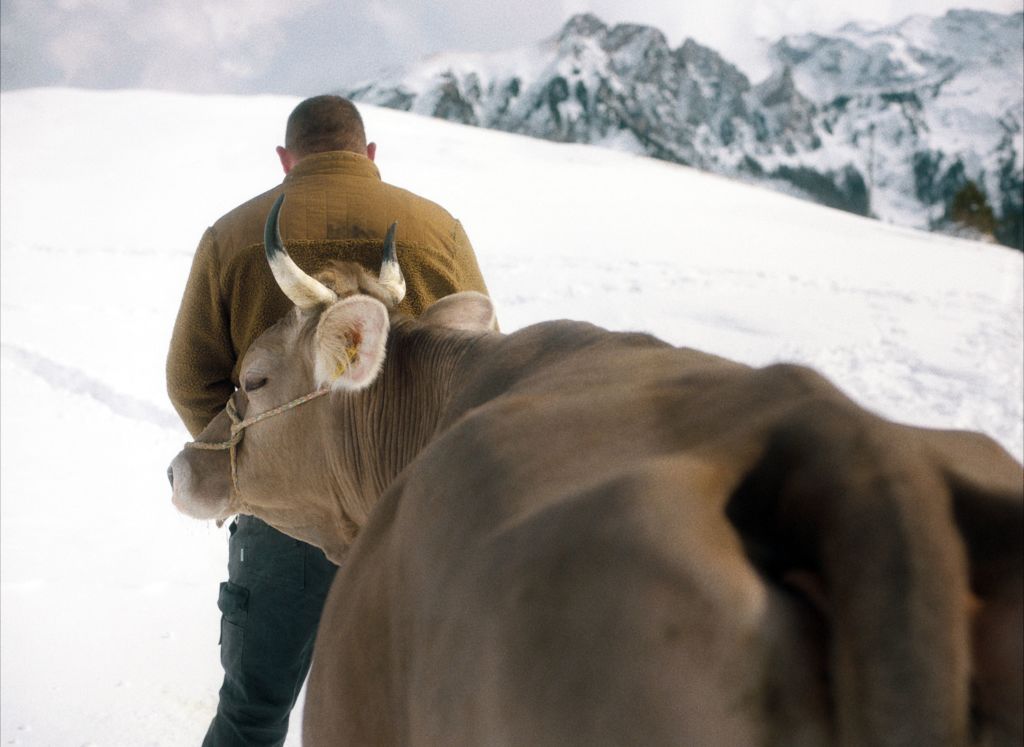
More
Alpine love story chosen as Swiss Oscar entry
Drii Winter has enjoyed a very successful festival run, starting with its debut at the Berlinale, where it received a Special Mention from the jury led by M. Night Shyamalan. Koch is speaking to us from Ghent, in Belgium, before leaving for the Austrian capital Vienna as part of the film’s European tour (after our conversation it was announced the Belgian festival had bestowed its Georges Delerue award for Best Music to Drii Winter).
In November Koch spent a week in New York and Los Angeles making the case for the film in front of Academy members. He’s optimistic about the American response to his film “We had our United States premiere at the Chicago Film Festival, and it went very well,” he said.
For him, the film’s strength is in its universal appeal, because of the story set in a “specific” part of the country, in reference to Tolstoy’s quote: “If you want to be universal, start by painting your own village”.
“It’s not a clichéd image of Switzerland,” according to Koch.
Switching titles
Not happy with the first title for the film (A Piece of Sky), he searched for one that was more relevant to the relationship between the two main characters.
“I went with Drii Winter, [in reference to] the three winters they’ve been together, which is how they count years in the area. We kept the first title for the English version because Three Winters didn’t sound very good.”

It’s a very different production compared to his first film, MarijaExternal link, a small-scale drama about a Ukrainian immigrant working poorly paid jobs in Germany. It’s bigger and bolder, and also more personal.
“I’m not from the mountains myself,” Koch explained. “But I would spend my summers there as a child and I still go there today, whenever I’m on holiday. I enjoy hiking and climbing. And I wanted to convey my relationship with that landscape, which is both beautiful and intimidating at the same time.”
The location of the film and its overall tragic feel have led to comparisons with Fredi M. Murer’s HöhenfeuerExternal link (Alpine Fire), one of the milestones of Swiss cinema. A flattering reference?
“Oh, there’s definitely a link,” Koch concedes. “In particular, we share this interest in exploring the boundaries between documentary and fiction. But I didn’t have the film on my mind, specifically, while working on Drii Winter, and I haven’t watched it in quite some time.”
What he has watched, though, is some of the current Swiss-German film output, including Cyril Schäublin’s Unrueh (Unrest), another Berlinale prize winner. “It was great that we both got selected in Berlin this year. There’s a lot of interesting material coming out of the German-speaking part of the country, and I think the future is very promising in that regard.”
Edited by Virginie Mangin

In compliance with the JTI standards
More: SWI swissinfo.ch certified by the Journalism Trust Initiative

























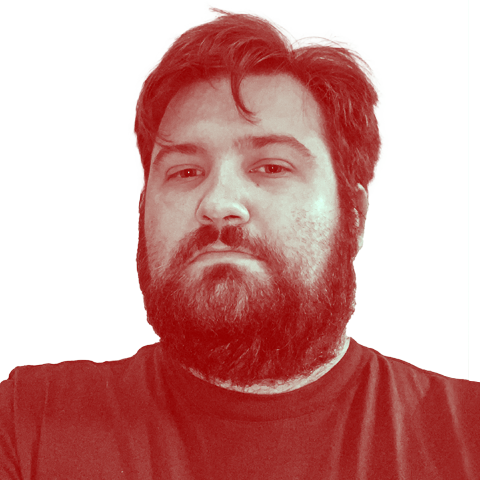
You can find an overview of ongoing debates with our journalists here . Please join us!
If you want to start a conversation about a topic raised in this article or want to report factual errors, email us at english@swissinfo.ch.